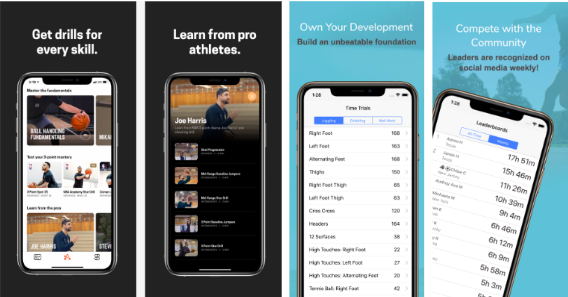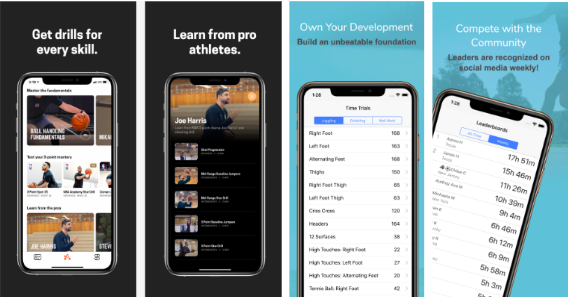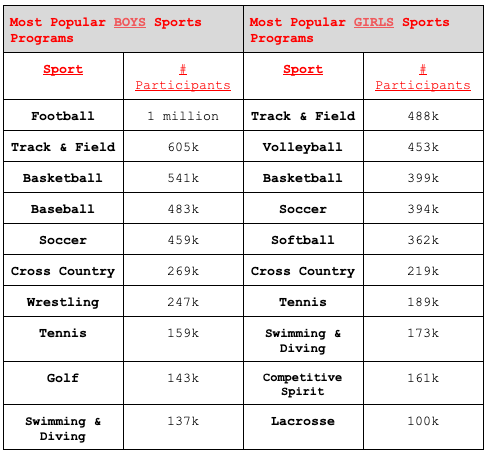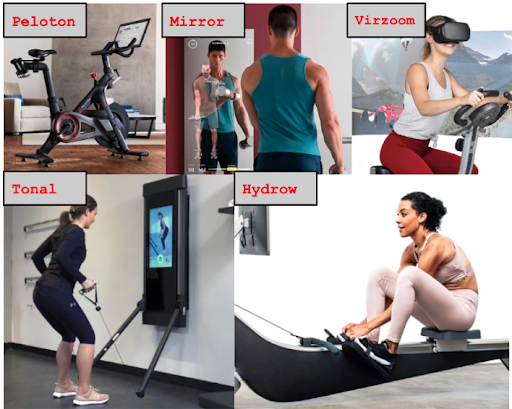nlopchantamang.com
Digital Fitness is Here to Stay
Trung Phan

Source: Sensor Tower
The Signal: According to the International Health, Racquet & Sportsclub Association (IHRSA), there are 62m gym memberships in the US and 183m globally. Social distancing measures have put the physical gym and fitness club industry on pause.
Similarly, in-person training for youth sports and fitness are on hiatus.
Against this backdrop, youth sports training apps have exploded in popularity. The basketball training app, HomeCourt, has jumped from the 100th most popular iPhone free sports app to 2nd place the past few weeks.
Joining HomeCourt in the top 10 is Techne Futbol, a soccer-training app that has seen its category ranking pop in recent weeks.

Source: Sensor Tower (HomeCourt App, Techne Futbol)
Both of these apps help athletes do solo training with key features including:
- Skills training (e.g., shooting and dribbling for basketball)
- Community features (e.g., post videos and stats for others to see)
- Training logs (e.g., track progress)
As with most iPhone apps, pricing is based on a freemium model:
- HomeCourt App: HomeCourt has a 14-day trial with follow-on subscription rates of $7.99/month ($69.99/year)
- Techne Futbol: The soccer training app also offers a free trial, with follow-on subscription options of $37.99/month ($279.99/year)
The Opportunity: While social distancing measures will eventually end in the months to come, the habits formed around digitally-enabled fitness may remain for millions.
Apps like HomeCourt and Techne Futbol are part of the broader trend towards interactive digital fitness solutions, with Peloton’s September 2019 IPO a particularly noteworthy milestone. One particularly sticky feature of these new platforms is the ability to create the sense of community.
Moving forward, opportunities in the space include:
Sports-Specific Training Apps: Aside from basketball and soccer, other single-sport apps that could thrive include those targeted at the most popular US high school sports, including football, track and field, baseball, tennis, golf, volleyball, softball, and lacrosse.

Source: National Federation of State High School Associations (USA)
Another option is to leverage Famer, a sports-agnostic app that allows coaches to set training, feedback and community with players and team members. Teams and clubs use the app for free while athletes are charged a fee (coaches set fees but the starting prices offered on the website range from $25-$100 per athlete per season).
Finally, general on-demand fitness apps with serious traction include Aaptiv (on-demand audio classes) and Neo U (live or on-demand streaming classes).
These apps off a wide range for lessons: Treadmill, Elliptical, Indoor Cycling, Rowing, Stair Climber, Strength Training, Stretching, Workouts for Weight Loss, Ab Workouts, Programs, Yoga, Boxing (just released last month), Walking, Meditation, 5K training, 10K Training, Half Marathon Training, Full Marathon Training
- Fitness Professionals Go Digital: Joel Ohman -- whose firm www.exercise.com offers white-label gym management and workout software -- believes that the coronavirus outbreak will force many fitness trainers to embrace digital.
And not just by posting on Instagram or YouTube, where the user experience is controlled by a third party. Rather, trainers that currently have their earning potential capped by the number of hours they can work should consider branded apps to "monetize expertise."
Such a digital solution (education, community features, assessment, marketing, training videos, messaging, personalized notes, etc.) offers the potential for recurring subscription revenue that is not directly tied to number of hours worked -- and, of particular importance now, independent of meeting in-person.
Paul Fabritz, the trainer for Houston Rockets’ star James Harden and an Ohman client, leveraged his brand to create an app to help improve an athlete’s vertical jump.
Perhaps the most notable example of a fitness professional going digital is Kayla Itsines. It is estimated that her Sweat training app brought in nearly $80m in 2018 (price = $19.99/month or $119.94/year).
From a technology standpoint, the app is worth keeping an eye on for different functionalities: "[Sweat] leverages Apple Watch’s visual interface to give video cues, and it added audio cues to the iOS app so the trainers can talk to you as you work out — much like an in-person trainer would."
With uncertainty over how long social distancing measures will last, many fitness professionals may have to transition to digital options as a primary (rather than supplemental) source of income. - Peloton For _______: Peloton’s success with its connected bike has created a whole class of "Peloton for [Fitness Category]" products. Growth number for a few of these names have popped in recent weeks:
- Peloton: Interactive biking (equipment cost = $2,245; monthly subscription = $58)
- Hydrow By Crew: Interactive rowing ($2,199; $38/month)
- Tonal: Strength-training device that can hang on your wall ($2,995; $49/month)
- Mirror: Full-length interactive mirror that offers kettlebell, yoga, boxing, barre, bootcamp classes ($1,495; $39/month)
- Virzoom: VR headset for virtual bike workouts ($99; $14.95/month)

Source: Company photos
Leave a Comment